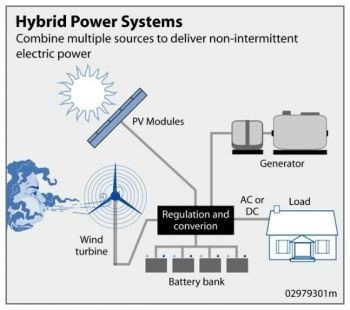Increased reliability: Hospitals require a constant and reliable source of power to ensure that medical equipment and devices operate properly. A hybrid power system can provide backup power during power outages or grid failures, reducing the risk of disruptions in critical operations.
Cost savings: Hospitals are among the largest consumers of electricity, and energy costs can be a significant expense. A hybrid power system can help reduce energy costs by utilizing renewable energy sources, such as solar or wind power, to supplement or replace grid electricity.
Environmental sustainability: Hospitals have a significant carbon footprint due to their energy use and waste generation. A hybrid power system can help reduce a hospital's greenhouse gas emissions by utilizing renewable energy sources and reducing reliance on fossil fuels.
Increased energy independence: A hybrid power system can provide a hospital with greater energy independence by reducing its reliance on the grid. This can help hospitals operate more self-sufficiently and reduce their vulnerability to power disruptions or price fluctuations.
Improved community resilience: Hospitals play a critical role in emergency response and disaster management. A hybrid power system can help improve a hospital's resilience during disasters or emergencies by ensuring that critical operations can continue even when the grid is down. This can also benefit the broader community by providing a reliable source of power during emergencies.
Overall, a hybrid power system can provide hospitals with a range of benefits, including increased reliability, cost savings, environmental sustainability, energy independence, and improved community resilience.






